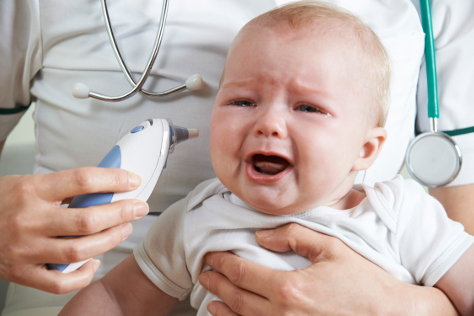What is sepsis? And how will I know if my baby has it?
Understanding what you need to know about sepsis

What is sepsis?
Also known as blood poisoning (septicaemia), sepsis is the reaction to an infection in which the body attacks its own organs and tissue. Babies and infants can be more susceptible to sepsis and requires early detection and rapid treatment for survival.
What can cause sepsis?
Suffering from an infection like a chest infection, urinary tract infection (UTI), or infected wounds can cause sepsis to develop.
The most common infections that cause sepsis in babies include:
• Respiratory syncytial virus (RSV)
• Cytomeglovirus (CMV)
• E. Coli
• Candida
• Herpes simplex virus
• Liseria monocytogenes
What do I spot if my baby has sepsis?
Key symptoms to be aware of include:
• A high temperature (38 degrees or higher) but equally a low temperature below 36 degrees
• Blue, pale or mottled skin or not fading rash
• Refusing to feed or trying to feed but clearly struggling/reduced sucking
• A fast pulse or increased breathing
• Chills or shivers
• Not as many wet nappies as usual
• More tired and lethargic
• Vomiting or diarrhoea
• Slow heart rate
• Low blood sugar
• Reduced movements
Treatment
Sepsis needs to be recognised and treated fast. Every hour that sepsis is not treated increases the risk of death.
Treatment is with IV fluids and antibiotics. Medications to raise blood pressure may also be needed. Babies are likely to be treated in intensive care and require a ventilator to breathe.
If you have any concerns an infection your baby has has developed into sepsis, contact your midwife or doctor as soon as possible.
Call 999 if your baby has an infection and is showing any of these symptoms:
• Cold and clammy or mottled skin
• Breathing difficulties
• Drowsiness or being unconscious or unresponsive
As scary as it sounds, the more you understand about the condition the quicker you can react should you ever need to.